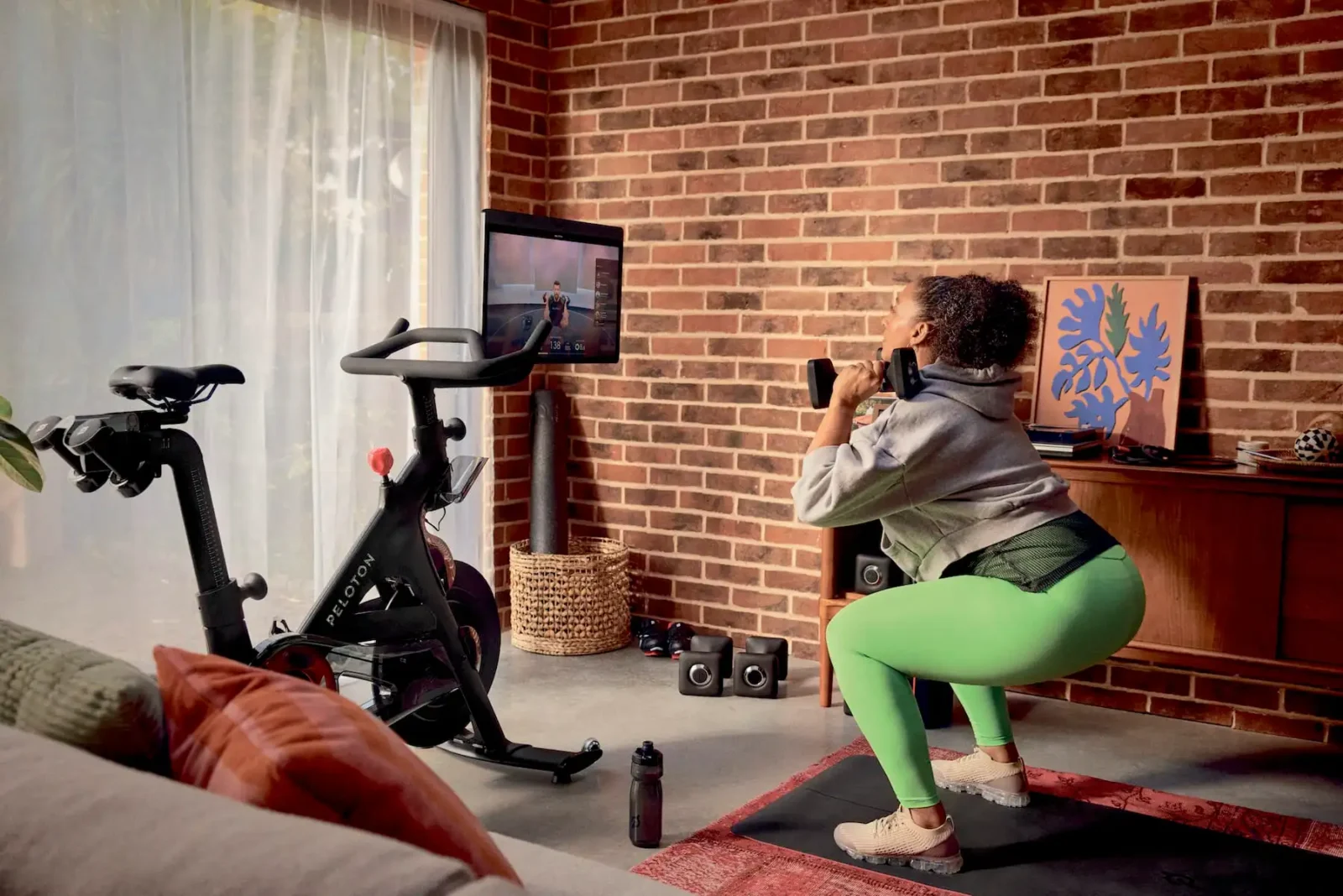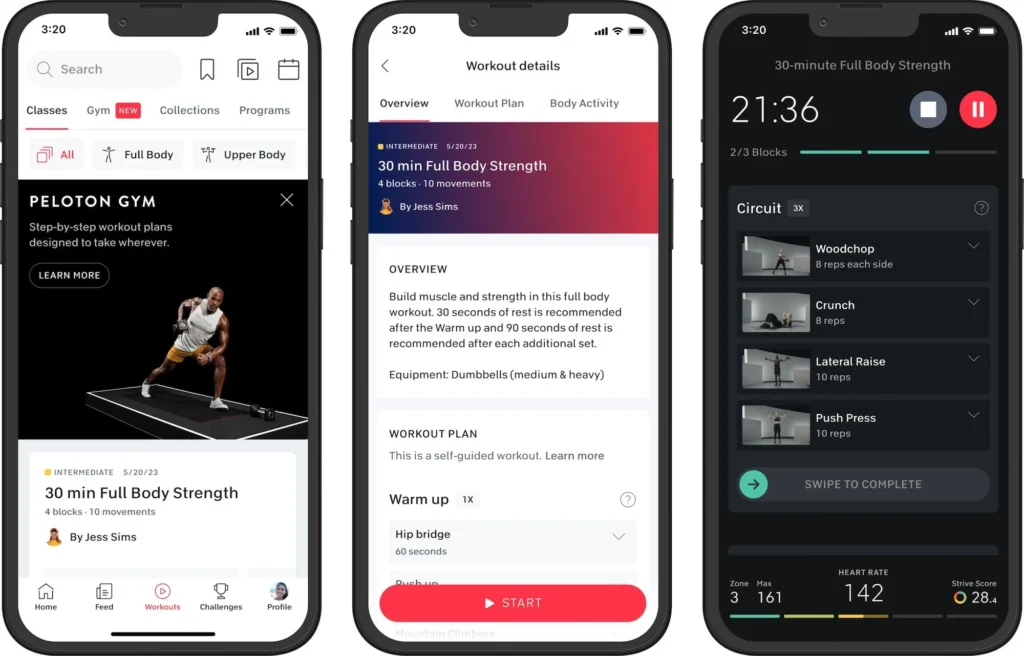Fitness Consumers View Tech as Motivational Tool, Peloton Finds

The spring season encourages Americans to prioritize fitness, and many are using tech to help them stay motivated, according to a Peloton study
Although January tends to get all the credit for having consumers looking to shape up, Peloton found that the spring season serves as a major reset button for Americans to prioritize their fitness goals. They’re also increasingly using technology as a motivational tool.
The connected fitness company has made it a mission to understand the motivation and challenges that fitness consumers experience on their health journeys. The new Spring Wellness Trends study follows Peloton’s first report, A Fitness Journey, issued last December.
“Our intention with this Spring study was to shed light on the collective shift in mindset and behavior around wellness that unfolds during the current seasonal weather transition,” said Ali Sher, senior director, consumer strategy and insights at Peloton. “We are committed to deepening our understanding of Americans’ relationship to fitness so we can continue to create experiences that empower people to be the best version of themselves anywhere, anytime.”
Spring Puts Focus on Physical & Mental Health
Budding blossoms and warmer temperatures may evoke more than just the desire for spring cleaning. According to Peloton’s new report, at this time of year, 77% of respondents pay more attention to their physical appearance, and seven in ten pay more attention to their mental health.
Catalysts for change also appear to vary, as Peloton found that more women (57%) are more likely to engage in fitness and physical activities to feel confident in a swimsuit than men (44%). Men, on the other hand, are more likely to be motivated by training for an athletic event.
As for spring wellness trends, Peloton discovered that respondents are more likely to regularly participate in (or have tried) mobility training and “cozy cardio,” such as low-impact walking in place. Gen Z fitness enthusiasts (43%) are likelier than Boomers (10%) to use habit-stacking wellness routines.
Peloton’s spring report also found that 46% of wellness seekers are aiming to spend more on nutrition this spring, with 89% reporting that improving their nutrition overall is important to them.
“As the weather gets warmer and people begin to pay more attention to their mental health (71%) and workout more often (66%), it makes sense that Americans become more conscious of what they are putting in their bodies and, in turn, are willing to spend a little more money to prioritize healthier options,” Sher tells Athletech News, adding that 72% of respondents plan to eat healthier.
Fitness Consumers Embrace Tech
Despite generation and gender gaps, Peloton’s spring study demonstrates that most fitness enthusiasts are encouraged by technology. Most agree that tech makes it easier to track fitness progress (63%), helps them hit their fitness goals more efficiently (49%), and improves their health (47%).
One notable finding was that 44% of respondents said technology motivated them to exercise when they didn’t want to, while 29% agree that technology is the only thing holding them accountable to their fitness goals. Men (51%) are also more likely than women (46%) to use data and tech to reach their goals, but Peloton found that this subset of fitness enthusiasts is also more likely to find technology “distracting.”
“Technology and fitness have gone hand-in-hand over the last few years, with more and more devices coming to the market with the promise to help people regain control and hold themselves accountable,” Sher said.
Younger generations, such as Gen Z (65%), are more likely than Baby Boomers (27%) to find that technology has improved their health or helped them achieve their goals more efficiently (65% of Gen Z vs. 32% of Boomers). Similarly, 59% of Gen Z reported that technology motivated them to exercise, as opposed to 27% of Boomers.
Sher predicts that the findings regarding technology’s motivational force mean the fitness landscape may transform even more.
“Since many consumers are citing technology as the reason they feel more motivated to work out, even when they don’t feel up for it, the fitness landscape will likely evolve and find new ways to further integrate technology into their platforms, with a possible focus on finding new ways to cultivate community through technology,” she said.

Peloton Sees ‘Positive Signals’ From TikTok Deal
Peloton introduced a new chief marketing officer at the close of 2023 to support its ongoing rebrand as it transitions away from its hardware-forward model in favor of relying on its fitness content and app.
The connected fitness giant is experimenting with various initiatives to tap into the Gen Z movement. One significant move that Peloton has made in recent months is an exclusive partnership with TikTok to bring short-form fitness content to the social media platform — a move that made investors cheer.
“Since the start of our partnership, together, we have successfully merged culture and creativity and seen significant growth in the viewership of the hashtag #TikTokFitness, which showcases positive signals of reaching new audiences,” a Peloton spokesperson tells ATN.
The connected fitness brand says it’s continuing to find new ways to expand its fitness content through select live Peloton classes with and without equipment, such as its “Workout with Your Bestie” series, original instructor series, ongoing creator partnerships, class clips and celebrity collaborations.
Courtney Rehfeldt has worked in the broadcasting media industry since 2007 and has freelanced since 2012. Her work has been featured in Age of Awareness, Times Beacon Record, The New York Times, and she has an upcoming piece in Slate. She studied yoga & meditation under Beryl Bender Birch at The Hard & The Soft Yoga Institute. She enjoys hiking, being outdoors, and is an avid reader. Courtney has a BA in Media & Communications studies.



